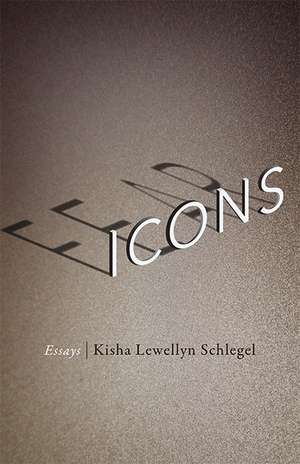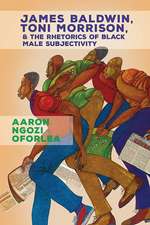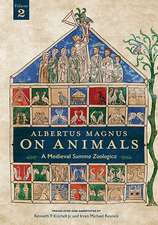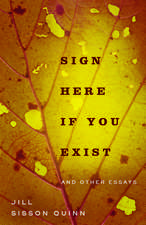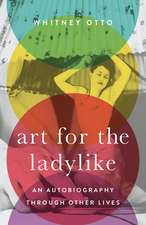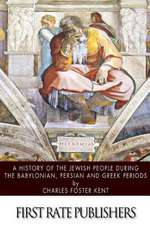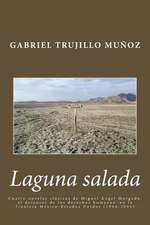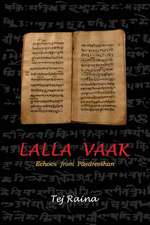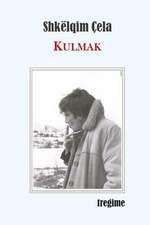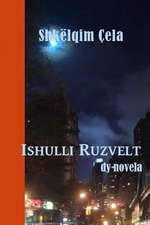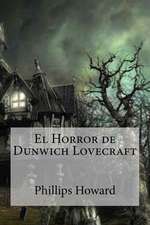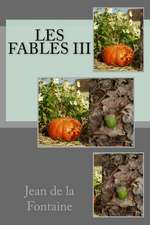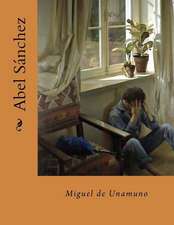Fear Icons: Essays: 21st Century Essays
Autor Kisha Lewellyn Schlegelen Limba Engleză Paperback – 7 oct 2018
“Who are we to each other when we’re afraid?” Kisha Lewellyn Schlegel asks in Fear Icons, her moving and original debut essay collection. Her answer is a lyric examination of the icons that summon and soothe our fears. From Donald Trump to the Virgin Mary, Darth Vader to the Dalai Lama, Schlegel turns cultural criticism personal with bracing intelligence and vulnerability as she explores what it means to be human, a woman, an artist, and, in particular, a parent: what it means to love a child beyond measure, someone so vulnerable, familiar, and strange. Schlegel looks at fear and faith—the ways the two are more similar than we realize—and the many shapes our faith takes, from nationalism to friendship, from art to religious dogma. Each essay is woven through with other voices—Baldwin, Ashbery, Du Bois, Cixous—positioning Schlegel’s arguments and meditations within a diverse and dynamic literary lineage. Fear Icons is a vital and timely inquiry into the complex relationship between love and fear—and the ways that each intensifies the other.
Din seria 21st Century Essays
-
 Preț: 160.80 lei
Preț: 160.80 lei -
 Preț: 144.33 lei
Preț: 144.33 lei -
 Preț: 108.17 lei
Preț: 108.17 lei -
 Preț: 140.55 lei
Preț: 140.55 lei -
 Preț: 111.26 lei
Preț: 111.26 lei -
 Preț: 105.16 lei
Preț: 105.16 lei -
 Preț: 112.49 lei
Preț: 112.49 lei -
 Preț: 106.20 lei
Preț: 106.20 lei -
 Preț: 166.06 lei
Preț: 166.06 lei -
 Preț: 127.45 lei
Preț: 127.45 lei -
 Preț: 108.03 lei
Preț: 108.03 lei -
 Preț: 140.47 lei
Preț: 140.47 lei -
 Preț: 103.91 lei
Preț: 103.91 lei -
 Preț: 155.05 lei
Preț: 155.05 lei -
 Preț: 147.11 lei
Preț: 147.11 lei -
 Preț: 174.52 lei
Preț: 174.52 lei -
 Preț: 178.10 lei
Preț: 178.10 lei -
 Preț: 148.67 lei
Preț: 148.67 lei -
 Preț: 170.25 lei
Preț: 170.25 lei -
 Preț: 132.52 lei
Preț: 132.52 lei -
 Preț: 176.88 lei
Preț: 176.88 lei -
 Preț: 143.44 lei
Preț: 143.44 lei -
 Preț: 145.35 lei
Preț: 145.35 lei -
 Preț: 148.41 lei
Preț: 148.41 lei -
 Preț: 149.08 lei
Preț: 149.08 lei -
 Preț: 166.85 lei
Preț: 166.85 lei -
 Preț: 173.50 lei
Preț: 173.50 lei -
 Preț: 172.69 lei
Preț: 172.69 lei -
 Preț: 103.72 lei
Preț: 103.72 lei -
 Preț: 119.18 lei
Preț: 119.18 lei -
 Preț: 104.95 lei
Preț: 104.95 lei
Preț: 145.96 lei
Nou
Puncte Express: 219
Preț estimativ în valută:
27.93€ • 29.05$ • 23.06£
27.93€ • 29.05$ • 23.06£
Carte tipărită la comandă
Livrare economică 10-16 aprilie
Preluare comenzi: 021 569.72.76
Specificații
ISBN-13: 9780814254943
ISBN-10: 0814254942
Pagini: 160
Dimensiuni: 140 x 216 x 13 mm
Greutate: 0.23 kg
Ediția:1
Editura: Ohio State University Press
Colecția Mad Creek Books
Seria 21st Century Essays
ISBN-10: 0814254942
Pagini: 160
Dimensiuni: 140 x 216 x 13 mm
Greutate: 0.23 kg
Ediția:1
Editura: Ohio State University Press
Colecția Mad Creek Books
Seria 21st Century Essays
Recenzii
“In her beautiful, bereaved debut, Fear Icons, Kisha Schlegel’s chambers make an ‘intimate venue’ for tremendous outrage, where private whispers ricochet, redirect, and echolocate mournfully to publically address ‘the sadness of the country I come from’—which is to say, Fear Icons is a book of prayers. It’s the first book of prayers of the twenty-first century that makes any sense to me.” —Robyn Schiff, author of A Woman of Property
“Kisha Schlegel’s brilliant debut illuminates some of our most hardened cultural icons and the fears that they induce. This is a bold new literary voice of fierce intelligence, vulnerability, and empathy.” —John D’Agata, author of Halls of Fame, About a Mountain, and The Lifespan of a Fact
“Startlingly original, imaginative as well as deeply researched, this essay collection simultaneously stuns and soothes. The writing is mesmerizing and incandescent, each sentence offering a way forward, not in spite of fear, but because of it.” —Inara Verzemnieks, author of Among the Living and the Dead
“Fear Icons is a weighty, urgent, and timely book. And it is, unironically, fearless amidst fear, as it sets out to place the author’s delicate observations against the stark and charged backdrop of a species forever at conflict with itself.” —Lina María Ferreira Cabeza-Vanegas, Rona Jaffe Award Winner and author of Don’t Come Back (OSU Press)
“The essays in Fear Icons—lush, alluring, revelatory—penetrate themes of exploitation, wonder, normalcy, and patriarchy. Kisha Lewellyn Schlegel is the new American essayist, equal parts poet, activist, and intellectual. This is a book to marvel over and to learn from, to treasure and to gift.” —Sharma Shields, author of The Sasquatch Hunter’s Almanac
Notă biografică
Kisha Lewellyn Schlegel is an essayist and Assistant Professor of English at Whitman College.
Extras
I was raised on God in a church without icons. We prayed in a sanctuary of stained glass made only of pastel-colored squares. The windows held none of the usual images of revelation. We used words to see Jesus. We spoke of the blood and the body as we took communion each week in that church in downtown Decatur, Georgia. Words turned the unleavened bread between our fingers into the body of God in our mouths. “This is my body, broken for you,” everyone prayed. They drank the juice, pretending it was blood. I imagined it sweating out of their skin, covering them with protection. I imagined salvation dresses made out of blood.
After breaking the body, they turned to each other and said, “Good morning. Peace be with you,” even as a small pool of red juice remained in the emptied plastic cups we passed between us, stained with a blood-light that shined its clear message onto us: This is the only way you won’t die.
The pierced foot. The slaughtered lamb. I was taught to read these images with love. But I feared the belief they required. Their blood. Their likeness. I couldn’t receive the wound as a form of love. There was a wound. I didn’t believe in that kind of sacrifice. I didn’t believe anyone’s death would save me.
I sat at the edge of every pew. I read the bible only when I was told to. I sang only when I stood next to my retired preacher of a granddad who passed his hymnal to me if ever I was quiet and reminded me to sing. I loved him. I sang the words that held no meaning for me because they held meaning for him. He passed the communion tray, and when he turned his head to pray, I held my hand over the unleavened bread called the body and the grape juice called blood and took nothing. I passed the tray, silver and heavy with a weight I refused to hold.
I turned away from the people around me who held their belief like a beloved and toward the stained glass that rose to an untouchable height. Each pane filled with variable light. The clouds formed shadows. Lightning flashed surprise without thunder. The clouds passed on. Summer again drove her searing light through the glass, revealing that every lit-up square of pastel was edged by the heavy lead needed to hold it safely in place.
The lead was slightly puckered in places where two pieces had been soldered together. They undulated like the varicose veins that run behind the knees of women in my family, swollen and tortuously lengthened—the kind of veins that always look painful and yet the women walk on.
These were the women who made me and whom I loved and relied on for my life. In their bodies lived suffering in its complexity. Its actuality.
Here was the image I knew to hold the complications of this life. The blood in the light.
In the edges, I found a way to keep looking.
After breaking the body, they turned to each other and said, “Good morning. Peace be with you,” even as a small pool of red juice remained in the emptied plastic cups we passed between us, stained with a blood-light that shined its clear message onto us: This is the only way you won’t die.
The pierced foot. The slaughtered lamb. I was taught to read these images with love. But I feared the belief they required. Their blood. Their likeness. I couldn’t receive the wound as a form of love. There was a wound. I didn’t believe in that kind of sacrifice. I didn’t believe anyone’s death would save me.
I sat at the edge of every pew. I read the bible only when I was told to. I sang only when I stood next to my retired preacher of a granddad who passed his hymnal to me if ever I was quiet and reminded me to sing. I loved him. I sang the words that held no meaning for me because they held meaning for him. He passed the communion tray, and when he turned his head to pray, I held my hand over the unleavened bread called the body and the grape juice called blood and took nothing. I passed the tray, silver and heavy with a weight I refused to hold.
I turned away from the people around me who held their belief like a beloved and toward the stained glass that rose to an untouchable height. Each pane filled with variable light. The clouds formed shadows. Lightning flashed surprise without thunder. The clouds passed on. Summer again drove her searing light through the glass, revealing that every lit-up square of pastel was edged by the heavy lead needed to hold it safely in place.
The lead was slightly puckered in places where two pieces had been soldered together. They undulated like the varicose veins that run behind the knees of women in my family, swollen and tortuously lengthened—the kind of veins that always look painful and yet the women walk on.
These were the women who made me and whom I loved and relied on for my life. In their bodies lived suffering in its complexity. Its actuality.
Here was the image I knew to hold the complications of this life. The blood in the light.
In the edges, I found a way to keep looking.
Descriere
Reflections on the myriad forms that fear takes and an examination of the ways that love and fear intensify each other.
